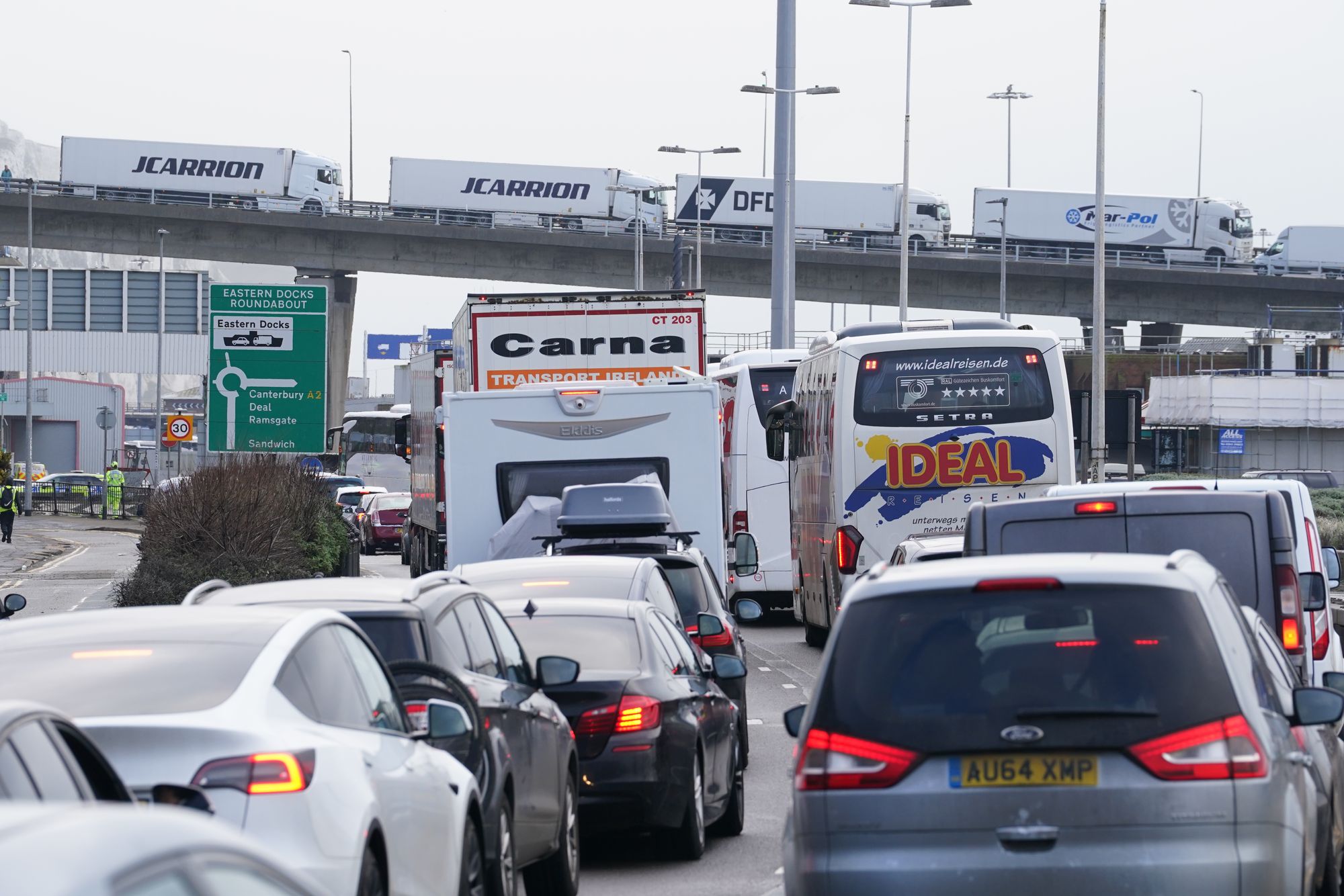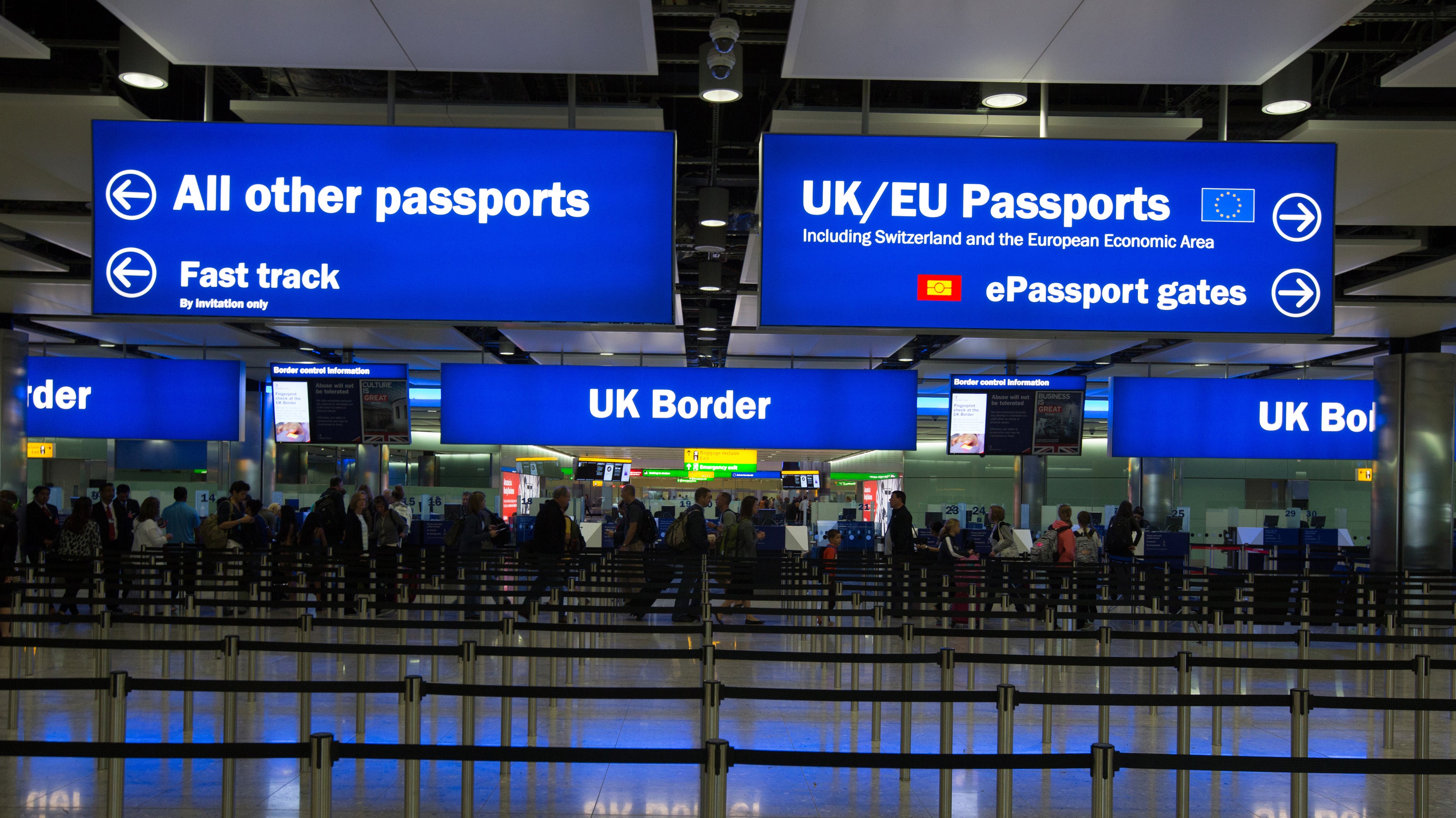International travellers and lorry drivers have been warned that they could face long delays at Dover and on the Eurostar when the new EU entry-exit system starts on Sunday.
Britons travelling to Europe will be subject to new entry checks, which require non-EU citizens to scan their passports and have their fingerprints and photograph taken. The new entry-exit system (EES) is being phased in over the next six months, with passengers required to register on arrival in the EU. Some border control checks will happen on UK soil.
The EES will come into effect on Sunday, affecting coaches and HGV drivers at Dover and the Channel Tunnel in Folkestone, as well as selected passengers on the Eurostar. Travellers have been warned that there may be longer waits at busy times while the new system is introduced, both at border crossings in the UK and on arrival in the EU.
Two contingency sites in Kent have been identified by government officials for passenger vehicles, in case of disruption. These include the Lydden Hill racetrack and one further site that is not yet up and running. The government is finalising an agreement to use a location along the A20/M20 route, where vehicles can be parked if the EES causes chaos at the Port of Dover.
These locations have been chosen as part of long-term efforts to boost Kent’s resilience to problems with Channel crossings, and could also be used if bad weather or industrial action cause disruption.

Government officials do not yet have a definitive list of which European airports will be first to introduce the border checks, but EU member states are expected to keep airline carriers informed.
The Independent has identified three countries that plan to be fully prepared from day one: the Czech Republic, Estonia and Luxembourg.
Spain is expected to apply the EES only to a single flight arriving at Madrid airport on Sunday. However, the EU has set a target for each country to have 10 per cent of their passengers registered from day 30 onwards.
The system will connect every frontier crossing point in the Schengen area – all EU nations except Ireland and Cyprus, plus Iceland, Norway and Switzerland.
UK officials believe that if there are signs of long delays caused by the new scheme, then individual countries can make changes and backtrack if needed. Due to the EU’s decision to roll out the programme in a phased manner, no major disruption is expected on Sunday. However, one travel expert, Julia Lo Bue-Said, chief executive of the Advantage Travel Partnership, warned on Friday that Britons should allow up to four hours from touchdown for delays at European airports.
Referring to busy southern European airports, she said: “It’s already a bottleneck – this is going to add even more of an issue. So our advice is actually to make sure, where possible, you’re leaving yourself between three and four hours from the point of entry.”
Under the EES, Brits will have to scan their fingerprints, have their image taken, scan their passport and then go to a border guard to have their registration validated. Officials have estimated this will take between one and three minutes, but it could result in longer waiting times.
Travellers may also be asked to respond to questions from Border Force officials, including whether they have travel insurance and sufficient funds to support themselves, and whether they have a return ticket and a place to stay. Though EU border guards are already allowed to ask these questions, it may become more frequent under the new system.
Despite warnings that passengers might have a longer wait to get to their destination, travellers have been told to follow the guidance set up by travel operators, such as Eurostar, and only arrive earlier than normal if advised to do so.

The EU has introduced the EES to help it crack down on overstayers and track compliance with the 90-day visa-free travel rule. The UK minister for border security, Alex Norris, said: “We recognise that EES checks will be a significant change for British travellers, which is why we have worked closely with our European partners to ensure the rollout goes as smoothly as possible.
“The UK and EU have a shared objective of securing our borders, and these modernisation measures will help us protect our citizens and prevent illegal migration.”
The minister for aviation, maritime and decarbonisation, Keir Mather, said: “We’ve backed our ports and operators with £10.5m to help them get ready for the EU’s new entry-exit system, ensuring they have the infrastructure and systems in place to manage the changes. Our priority is to minimise disruption for travellers and hauliers, particularly at our busiest border crossings. We’ll continue working closely with European partners and local resilience forums to keep traffic flowing and journeys smooth”.



0 Comments